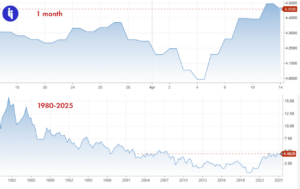Briefly: The annual three day Shangri-La Dialogue wrapped up yesterday (Sunday), after bringing together 600 defence and security delegates from 49 countries at the sprawling Shangri-La Hotel in Singapore.
Each year the summit generates seemingly endless headlines, particularly around US-China competition. And this year was no exception. Highlights included:
- 🇦🇺 Australia’s PM urged China to re-open dialogue with the US
- 🇺🇸 The US defence secretary rebuked China for not resuming military talks with the US
- 🇨🇳 China’s defence minister called on the US to decease military deployments near China
- 🇵🇭 A Philippines coast guard rep said there was a disconnect between China’s pro-dialogue words and its actions in the South China Sea
- 🇩🇪 Germany’s defence minister announced Germany will send two warships to the Indo-Pacific in 2024 to help maintain regional security
- 🇮🇩 Indonesia’s defence minister revealed a Russo-Ukraine peace plan focused on demilitarised zones in Ukraine (a proposal quickly dismissed by Ukraine’s defence minister, who said it sounded like a “Russian plan”)
Intrigue’s take: There was plenty of disagreement on display in Singapore over the weekend, yet almost everyone seemed to agree on one thing: US-China conflict would be a disaster not just for the two countries, but the entire world.
Stay on top of your world from inside your inbox.
Subscribe for free today and receive way much more insights.
Trusted by 127,000+ subscribers
No spam. No noise. Unsubscribe any time.
And so… given everyone agrees, there should be a path for China and the West to de-escalate. The problem is it’s hard to see one right now:
- China’s military build-up and increasing assertiveness have spooked capitals all over, and yet
- When other countries respond with their own military build-up to deter China, Beijing interprets that as aggression, and again expands its military in response
This, dear Intriguer, is a classic security dilemma. And it’s hard to break out of one without dialogue. Hence the many calls for dialogue over the weekend.
Also worth noting:
- China is set to increase defence spending this year by 7.2% to $220B. US defence spending is up 4.2% this year, hitting $773B.
- Some two dozen spy chiefs also met on the sidelines of the summit, including intelligence heads from China, the US, India, Europe, and beyond. The tone was reportedly more direct but more collaborative.









